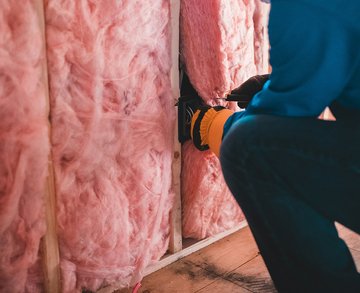Becoming a first-time home buyer can be an overwhelming process, filled with excitement and uncertainty. The journey to homeownership, often referred to as climbing the property ladder, can be a complex one, especially for those who are new to the market.
With the right knowledge and preparation, you can confidently take the first step onto the property ladder. In this blog, we will guide you through the process of first-time home buying, explain the various government schemes available, explore shared ownership, discuss the eligibility criteria, and provide insights into the application process. So, let's dive in and discover how you can make your homeownership dreams a reality.
Understanding First-Time Home Buying
Deciding to purchase your first home is a significant milestone. But before you dive into the home-buying process, it's essential to understand the key terms associated with first-time home buying, such as the property ladder, first home, and home ownership. The term property ladder refers to the progression of property ownership, starting from your first home and moving up to more expensive properties in the future. Owning a home provides a sense of stability, the freedom to make changes, and the opportunity to build equity over time.
Overview of the Home Buying Process for Beginners
For first-time buyers, the process can seem daunting. However, with a clear understanding of the steps involved, you can navigate the process smoothly. Here's a brief overview of the process for beginners:
Get a mortgage agreement in principle
Consider the property costs and fees before beginning the house-hunting process to determine affordability. Obtain a mortgage agreement in principle (AIP) to understand the amount you can borrow from your mortgage lender, which will streamline your house search within your budget and facilitate the offer-making process. While an AIP does not guarantee a mortgage, it could expedite the approval process and be advantageous in competitive housing markets where proof of an AIP may be required for property viewings.
If you want to get independent advice on mortgage rates, you can speak to a specialist mortgage advisor. Complete your mortgage application as early as possible to help avoid delays further down the line.
Find your home and make an offer
If you have found the perfect home, be sure to notify the real estate agent right away so they can pass on your offer to the seller. According to surveys, 49% of UK homeowners think it's feasible to fall in love with a property in a matter of seconds. Therefore, it's crucial to act swiftly in securing your dream home, as another potential buyer might make an offer before you.
Instruct a conveyancer
If you’ve not already chosen a conveyancer, once you’ve had your offer accepted, it’s time to get the ball rolling and select a conveyancer to act on your behalf. They will lead you through the process of buying a house and handle all the legal work required to transfer the ownership of the home.
Perform conveyancing searches
Your conveyancer will coordinate property searches to provide you with additional information about the house before proceeding with your purchase. The primary searches include Land Registry, environmental, and drainage searches, which play a crucial role in flagging potential issues such as flood risk, ground stability, and local development plans.
If you are obtaining a mortgage for the property purchase, your lender will probably require these searches to ensure that their investment is secure.
Arrange a survey
Your mortgage lender will conduct a desktop survey to determine the property's valuation, but you may also consider obtaining a homebuyer's survey to assess the property's overall condition and gather information on necessary repairs and maintenance. Homebuyer's surveys are typically beneficial when purchasing a house, despite the extra expense, as they offer insight into the property's overall condition and aid in future financial planning. Additionally, they may provide an opportunity to renegotiate the property price if the report identifies urgent issues.
Finalise your mortgage
After completing the survey, you can notify your lender that you are prepared to move forward with the purchase. Upon approval of your mortgage application, you will be presented with an offer from your mortgage provider. Take the time to carefully review the mortgage product and contract terms to ensure that they align with your needs, as this is a significant commitment. If you are satisfied with the mortgage offer, you can proceed to the final stages of purchasing your home.
Pay the deposit
To prevent any interruptions, it's important to transfer the deposit to your conveyancer's account promptly so that it's cleared before the exchange. Depending on the duration between the exchange and completion, you may also be responsible for covering conveyancing fees and Stamp Duty.
Agree on moving dates
Now is the right time to initiate discussions about tentative moving dates with the seller and the rest of the chain. It's a good opportunity to begin obtaining quotes for house removal, which will assist in budgeting as the costs can sometimes exceed your expectations. Be sure to refer to our useful moving house checklist to ensure a smooth relocation process.
Exchange contracts
Your conveyancer will lead you through one of the last stages of the transaction, which is exchanging contracts. After the contracts are signed, you are now in a legally binding agreement to purchase the property.
Complete your purchase
Upon completion of the purchase of your new house, your conveyancer will inform the Land Registry of your ownership and facilitate the transfer of funds if there are any taxes to be paid. After the registration process, your conveyancer will provide you and your mortgage provider with copies of the title deeds. At this point, all that's left to do is to enjoy your new home!
Importance of Proper Financial Planning
Proper financial planning plays a crucial role in achieving your goal of homeownership. It's essential to have a clear understanding of your financial situation, market values, and the costs associated with property ownership. Financial planning for first-time home buyers involves budgeting, understanding the market value of properties, and considering additional costs like mortgage payments, property taxes, and home insurance. By planning your finances effectively, you can position yourself for a successful home purchase and long-term property ownership.
Government Schemes for First-Time Buyers
The government of the UK offers several schemes to support first-time home buyers in their journey towards property ownership. These schemes provide financial assistance, favourable mortgage options, and shared ownership opportunities. Let's explore a few of the most popular government schemes for first-time home buyers.
Lifetime Individual Savings Account (LISA) Explained
One of the government schemes available for first-time home buyers is the Lifetime Individual Savings Account (LISA). This scheme offers a tax-free savings account for individuals aged 18-39, providing a boost to saving for a first home. The LISA allows you to save up to £4,000 per year, and the government will add a 25% bonus, up to a maximum of £1,000 per year. These savings, along with the government bonus, can be used towards the purchase of your first home. It's important to note that the funds saved in a LISA can only be used for a property purchase or retirement, otherwise, you may incur a penalty.
An Insight into the Help to Buy Mortgage Guarantee Scheme
Another government scheme that supports first-time home buyers is the Help to Buy Mortgage Guarantee Scheme. This scheme assists home buyers, especially those with smaller deposits, in securing a mortgage. Under this scheme, the government provides a guarantee to the mortgage lender, allowing them to offer higher loan-to-value mortgages of up to 95%. This enables first-time home buyers to purchase a property with a smaller deposit, as low as 5%. The Help to Buy Mortgage Guarantee Scheme has been extended until 30 June 2025, providing continued support for those trying to get on the property ladder.
Regional Assistance for First-Time Buyers
In addition to the government schemes mentioned above, first-time home buyers can also benefit from regional assistance programs. These programs are designed to provide local area insights, financial aid, and additional support to make property ownership more accessible. The availability of regional assistance may vary depending on your location, so it's important to research and explore the options available in your area. Local governments, housing associations, and community organisations often offer additional support to first-time home buyers, such as shared equity schemes, discount purchase schemes, or low-interest loans.
What is Shared Ownership?
Shared ownership is a popular option for first-time home buyers, especially for those who may not be able to afford the full market value of a property. This shared ownership scheme allows individuals to purchase a share of a home, typically between 25% and 75%, and pay rent on the remaining share. Shared ownership provides an opportunity to get on the property ladder with a lower initial cost, as the mortgage payments are based on the share of the property owned. Over time, as your financial situation improves, you can increase your share of the home, a process known as "staircasing."
How Shared Ownership Works
Shared ownership works by allowing first-time home buyers to purchase a share of a property while also paying rent on the remaining share. Here's a breakdown of how shared ownership works:
- Purchase a share: You buy a share of the property, typically between 25% and 75%. The share you purchase will depend on your affordability and the property value.
- Pay rent: You pay a subsidised rent on the remaining share of the property, which is owned by a housing association or a landlord.
- Mortgage payments: You are responsible for the mortgage payments for the share of the property that you own. These payments are usually more affordable than buying the property outright.
- Share increase: Over time, you have the option to increase your share of the property, a process called "staircasing." This allows you to gradually increase your ownership until you eventually own the property outright.
Pros and Cons of Shared Ownership
Opting for shared ownership presents a more affordable opportunity to access the property market, offering the potential for property value appreciation. However, this option comes with limitations, such as restrictions on subletting the property and the owner's responsibility for maintenance, repairs, and service charges. Additionally, shared ownership properties may face challenges in terms of sale due to market demand, despite the initial benefits it provides.
What is the First Homes Scheme?
The First Homes Scheme aims to facilitate local first-time buyers in stepping onto the property ladder, aligning eligibility with the local area for a strong community connection. This scheme offers a minimum 30% discount to key workers, local first-time buyers, and veterans, prioritizing allocation based on local council priorities and the utmost need. It presents a promising opportunity for essential local workers to achieve their dream of first home ownership, emphasizing the significance of supporting those who contribute significantly to the community. For example, if you're a local key worker, you could purchase a First Homes property with a 30% discount, reducing the property purchase price for you. This means that you won't have to save for such a big deposit to step onto the property ladder and your mortgage repayments will be lower.
Who Qualifies for the First Homes Scheme?
The First Homes Scheme is designed to support first-time buyers, key workers, and residents who struggle to get onto the property ladder. Priority is given to armed forces personnel, veterans, and key workers, with a requirement for a local connection. Successful applicants must be purchasing their first home.
Criteria for Applying to the First Homes Scheme
When applying to the First Homes Scheme, applicants must be either first-time buyers or previous homeowners unable to purchase a home. The property price for the scheme should not exceed the government-set price cap, with income caps in place to benefit those in need. Additionally, the scheme gives priority to local residents, key workers, and veterans for property ownership, aiming to create a positive impact in local areas by providing affordable homes.
The First Homes Scheme Application Process
The process of applying for the First Homes Scheme involves close coordination with local authorities. Applicants looking to purchase homes through the scheme must approach the designated providers enlisted by the scheme. The allocation of homes is overseen by local councils to ensure equitable distribution. This initiative involves a collaboration with local housebuilders to offer a diverse range of new homes. The primary goal of the scheme is to facilitate a smooth and seamless transition to first-time home ownership, right from the application stage through to the actual purchase.
Steps to Apply for the First Homes Scheme
To apply for the First Homes Scheme, individuals should start by registering online. After registration, they can view the properties available within the scheme and express interest in specific homes. Successful applicants have the opportunity to purchase a property at a discounted price through the scheme, which aims to simplify the home buying process and support first home ownership. This process helps individuals achieve their goal of owning a home for the first time while keeping track of the enquiries they send to agents.
How to Find a New-build Home
When looking for a new-build home, consider exploring the available options through local developers. The scheme provides a range of new homes tailored to first-home buyers' needs, offering opportunities for home ownership, including shared ownership. It aims to increase the supply of affordable new homes in local areas, providing first-time buyers with viable housing options.
Evaluating the Financial Aspects of Buying a Property
When buying their first home, individuals may benefit from the First Homes Scheme, which allows for a deposit as low as 5%. First-time buyers must consider additional costs like mortgage payments and assess the full market value of the property. Shared ownership entails initial expenses such as mortgage, rent, and service charges. Through this scheme, first-home buyers can accurately evaluate their financial readiness for property ownership without any issues.
Determining the Deposit for the First Homes Scheme
With a deposit as low as 5%, the First Homes Scheme reduces the financial barrier for first-time buyers. By requiring a lower deposit compared to traditional home buying, the scheme makes property ownership accessible. This initiative encourages property ownership for eligible individuals and supports first-home buyers in achieving ownership, effectively reducing the financial barrier associated with purchasing a property.
Are there any Downsides to First Home Schemes?
While first-home schemes can offer great opportunities, it's important to be aware of potential downsides. Eligibility criteria and restrictions on property type may limit participation. These schemes could also impact future opportunities on the property ladder. Limited availability and the market value of the property may pose further challenges.
Conclusion
To sum it up, getting on the property ladder as a first-time buyer can be an exciting and rewarding experience. With proper financial planning, an understanding of government schemes and assistance available, and careful consideration of your eligibility and options, you can make your dream of owning a home a reality. Remember to evaluate the financial aspects, determine the deposit required for the scheme you choose, and be aware of any downsides or common mistakes to avoid. Take the time to find the right home for you and consider seeking guidance from professionals in the industry. With thorough research and preparation, you'll be well-equipped to navigate the application process and start your journey as a homeowner.





